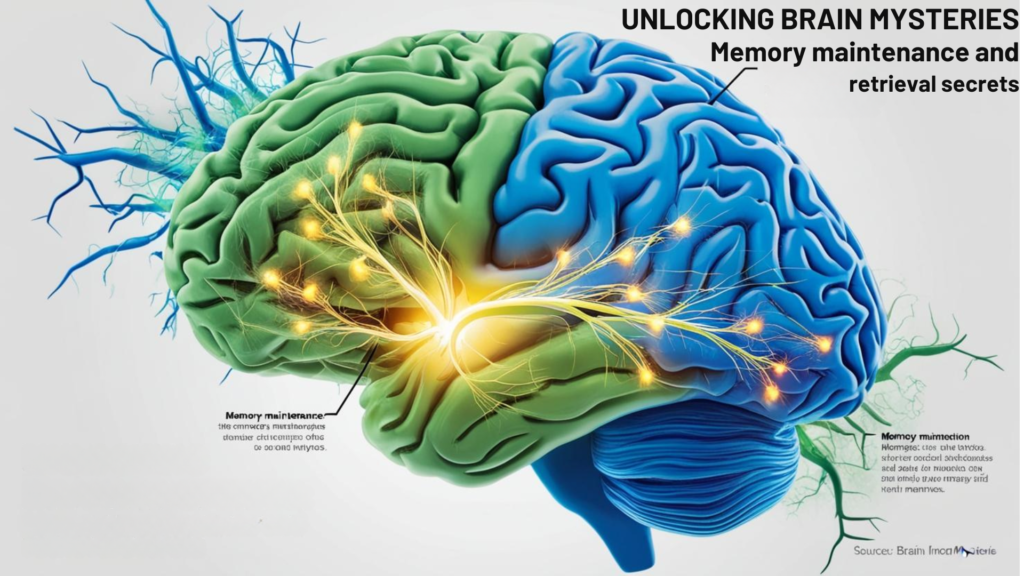Latest Discoveries in Memory: Why Brain Activity Doesn’t Always Predict Recall Success
Table of Contents
The human brain is an enigmatic organ with unparalleled complexity, and one of its most intriguing functions is memory. While much is known about how memories are formed and stored, there remain many mysteries, especially when it comes to short-term memory maintenance and retrieval. A recent study published in Frontiers has shed light on one such mystery, potentially changing how we understand the process of memory retrieval. Let’s delve into these captivating findings.
Understanding Memory: Maintenance vs. Retrieval
Memory is broadly classified into different stages: encoding, storage, and retrieval. Short-term memory, also known as working memory, is a system responsible for temporarily holding information available for processing. During this process, two critical stages occur: maintenance and retrieval.
Memory Maintenance
- Maintenance: This involves keeping information in an accessible state, usually for a short amount of time. It is akin to holding a phone number in your mind long enough to dial it.
- Working Memory: This section of short-term memory is active and dynamic, supporting cognitive processes such as decision-making and problem-solving.
Memory Retrieval
- Retrieval: The process of recalling information stored earlier. Successful retrieval depends on how well the information was encoded and organized in the brain.
- Challenges: Retrieval is not always successful and can be influenced by numerous factors, including the emotional state and context at the time of recall.
Key Findings from Recent Research
The recent study focuses on understanding if brain activation patterns during associative short-term memory maintenance can predict the success of subsequent retrieval. Surprisingly, the study found that activation in certain brain regions during the maintenance phase does not guarantee successful retrieval later.
The Research Methodology
- Participants: The study involved participants performing memory tasks while undergoing brain scans.
- Task Design: Participants were asked to memorize sets of information, like word-image pairs, and their brain activity was monitored during the maintenance and retrieval phases.
- Observation: Researchers observed the activation of regions typically associated with memory, such as the prefrontal cortex and the hippocampus, during the maintenance phase.
Unexpected Results
The findings showed that even when these regions were active during maintenance, it didn’t necessarily lead to successful retrieval. This discovery challenges existing theories that link strong activation patterns during maintenance with enhanced retrieval success, suggesting memory processes are more intricate and possibly influenced by other factors.
The Implications of These Findings
These findings have broad implications for our understanding of memory and could influence the development of new strategies and technologies in several fields:
Neuroscience and Cognitive Psychology
- Understanding Disorders: This research may provide insights into memory-related disorders like Alzheimer’s, where maintenance might be intact, but retrieval is compromised.
- Theoretical Models: These findings encourage a reevaluation of current models understanding memory, prompting new research to explore additional variables that affect retrieval.
Technology and AI
- Machine Learning: Insights from the brain’s unpredictable nature during memory processes could lead to the development of more advanced algorithms in AI that mimic these behaviors.
- Neural Interface Technology: As brain-computer interfaces (BCI) evolve, understanding these intricate memory processes is crucial for improving BCI applications in healthcare.
What Lies Ahead: Future Research Directions
While this study is pioneering, it also indicates a need for further investigation. Researchers are now keen to explore:
- Impact of Emotional State: How does an individual’s emotional condition during encoding and retrieval affect memory?
- Cognitive Load and Context: How do these factors play into memory maintenance and retrieval success?
- Interventional Strategies: What techniques can enhance retrieval success independent of maintenance phase indicators?
Conclusion
The discoveries from this study offer a fresh perspective on memory, suggesting that brain activation during the maintenance phase doesn’t necessarily predict retrieval success. This prompts a deeper exploration of memory mechanisms, challenging previous assumptions, and encouraging innovative approaches to understanding human cognition.



